Джон Фаулз - The Tree
Здесь есть возможность читать онлайн «Джон Фаулз - The Tree» весь текст электронной книги совершенно бесплатно (целиком полную версию без сокращений). В некоторых случаях можно слушать аудио, скачать через торрент в формате fb2 и присутствует краткое содержание. Жанр: Современная проза, на английском языке. Описание произведения, (предисловие) а так же отзывы посетителей доступны на портале библиотеки ЛибКат.
- Название:The Tree
- Автор:
- Жанр:
- Год:неизвестен
- ISBN:нет данных
- Рейтинг книги:5 / 5. Голосов: 1
-
Избранное:Добавить в избранное
- Отзывы:
-
Ваша оценка:
- 100
- 1
- 2
- 3
- 4
- 5
The Tree: краткое содержание, описание и аннотация
Предлагаем к чтению аннотацию, описание, краткое содержание или предисловие (зависит от того, что написал сам автор книги «The Tree»). Если вы не нашли необходимую информацию о книге — напишите в комментариях, мы постараемся отыскать её.
The Tree — читать онлайн бесплатно полную книгу (весь текст) целиком
Ниже представлен текст книги, разбитый по страницам. Система сохранения места последней прочитанной страницы, позволяет с удобством читать онлайн бесплатно книгу «The Tree», без необходимости каждый раз заново искать на чём Вы остановились. Поставьте закладку, и сможете в любой момент перейти на страницу, на которой закончили чтение.
Интервал:
Закладка:
I am a heretic about Linnaeus, and find nothing less strange, or more poetically just, than that he should have gone mad at the end of his life. I do not dispute the value of the tool he gave to natural science — which was in itself no more than a shrewd extension of the Aristotelian system and which someone else would soon have elaborated, if he had not; but I have doubts about the lasting change it has effected in ordinary human consciousness.
It is not that I don’t share some of my father’s fertile attachment to the single tree, the tree in itself, and the art of cultivating it, literally or artistically. But I must confess my own love is far more of trees, more exactly of the complex internal landscapes they form when left to themselves. In the colonial organism, the green coral, of the wood or forest, experience, adventure, aesthetic pleasure, I think I could even say truth, all lie for me beyond the canopy and exterior wall of leaves, and beyond the individual.
Evolution has turned man into a sharply isolating creature, seeing the world not only anthropocentrically but singly, mirroring the way we like to think of our private selves. Almost all our art before the Impressionists — or their St John the Baptist, Williani Turner — betrays our love of clearly defined boundaries, unique identities, of the individual thing released from the confusion of background. This power of detaching an object from its surroundings and making us concentrate on it is an implicit criterion in all our judgements on the more realistic side of visual art, and very similar, if not identical, to what we require of optical instruments like microsopes and telescopes — which is to magnify, to focus sharper, to distinguish better, to single from the ruck. A great deal of science is devoted to this same end: to providing specific labels, explaining specific mechanisms and ecologies, in short for sorting and tidying what seems in the mass indistinguishable one from the other. Even the simplest knowledge of the names and habits of flowers or trees starts this distinguishing or individuating process, and removes us a step from total reality towards anthropocentrism, that is, it acts mentally as an equivalent of the camera view-finder. Already it destroys or curtails certain possibilities of seeing, apprehending and experiencing. And that is the bitter fruit from the tree of Uppsalan knowledge.
It also begs very considerable questions as to the realities of the boundaries we impose on what we see. In a wood the actual visual 'frontier' of any one tree is usually impossible to distinguish, at least in summer. We feel, or think we feel, nearest to a tree's 'essence’ (or that of its species) when it chances to stand like us, in isolation, but evolution did not intend trees to grow singly. Far more than ourselves they are social creatures, and no more natural as isolated specimens than man is as a marooned sailor or a hermit. Their society in turn creates or supports other societies of plants, insects, birds, mammals, micro-organisms; all of which we may choose to isolate and section off, but which remain no less the ideal entity, or whole experience, of the wood — and indeed are still so seen by most of primitive many kind.
Scientists restrict the word symbiotic to those relationships between species that bring some detectable mutual benefit; but the true wood, the true place of any kind, is the sum of all its phenomena. They are all in some sense symbiotic, being together in a togetherness of beings. It is only because such a vast sum of interactions and coincidences in time and place is beyond science’s calculation (a scientist might say, beyond useful function, even if calculable) that we so habitually ignore it, and treat the flight of the bird and the branch it flies from, the leaf in the wind and its shadow on the ground, as separate events, or riddles — what bird? which branch? what leaf? which shadow? These question-boundaries (where do I file that?) are ours, not of reality. We are led to them, caged by them not only culturally and intellectually, but quite physically, by the restlessness of our eyes and their limited field and acuity of vision. Long before the glass lens and the movie-camera were invented, they existed in our eyes and minds, both in our mode of perception and in our mode of analysing the perceived: endless short sequence and jump-cut, endless need to edit and range this raw material.
I spent all my younger life as a more or less orthodox amateur naturalist, as a pseudo-scientist, treating nature as some sort of intellectual puzzle, or game, in which being able to name names and explain behaviourisms — to identify and to understand machinery — constituted all the pleasures and the prizes. I became slowly aware of the inadequacy of this approach: that it insidiously cast nature as a kind of opponent, an opposite team to be outwitted and beaten; that in a number of very important ways it distracted from the total experience and the total meaning of nature — and not only of what I personally needed from nature, not only as I had long, if largely unconsciously, begun to feel it (which was neither scientifically nor sentimentally, but in a way for which I had, and still have, no word). I came to believe that this approach represented a major human alienation, affecting all of us, both personally and socially; moreover, that such alienation had much more ancient roots behind the historical accident of its present scientific, or pseudo-scientific, form.
Naming things is always implicitly categorizing and therefore collecting them, attempting to own them; and because man is a highly acquisitive creature, brainwashed by most modern societies into believing that the act of acquisition is more enjoyable than the fact of having acquired, that getting beats having got, mere names and the objects they are tied to soon become stale. There is a constant need, or compulsion, to seek new objects and names — in the context of nature, new species and experiences. Everyday ones grow mute with familiarity, so known they become unknown. And not only in non-human nature: only fools think our attitude to our fellow-men is a thing distinct from our attitude to ‘lesser' life on this planet.
All this is an unhappy legacy from Victorian science, which was so characteristically obsessed with both the machine and exact taxonomy. I came only the other day on a letter in a forgotten drawer of the little museum of which I am curator. It was from a well-known Victorian fern expert, concerning some twenty or so specimens he had been sent from Dorset — all reducible, to a modern botanist, to three species. But this worthy gentleman felt obliged, in a welter of Latin polysyllables, to grant each specimen some new sub-specific or varietal rank, as if they were unbaptized children and might all go to hell if they were not given individual names. It would be absurd to deny the Victorians their enormous achievements in saner scientific fields, and I am not engaging in some sort of Luddite fantasy, wishing the machine they invented had been different, or even not at all. But we are far better at seeing the immediate advantages of such gains in knowledge of the exterior world than at assessing the cost of them. The particular cost of understanding the mechanism of nature, of having so successfully itemized and pigeon-holed it, lies most of all in the ordinary person's perception of it, in his or her ability to live with and care for it — and not to see it as challenge, defiance, enemy. Selection from total reality is no less necessary in science than it is in art; but outside those domains (in both of which the final test of selection is utility, or yield, to our own species) it seriously distorts and limits any worthwhile relationship.
I caused my hosts at Uppsala, where I went to lecture on the novel, some puzzlement by demanding (the literary business once over) to see Linnaeus’s garden rather than the treasures of one of the most famous libraries in Europe. The feeling that I was not behaving as a decent writer should was familiar. Again and again in recent years I have told visiting literary academics that the key to my fiction, for what it is worth, lies in my relationship with nature — I might almost have said, for reasons I will explain, in trees. Again and again I have seen, under varying degrees of politeness, this assertion treated as some sort of irrelevant quirk, eccentricity, devious evasion of what must be the real truth: literary influences and theories of hction, all the rest of that purely intellectual midden which faculty hens and cocks so like scratching over. Of course such matters are a part of the truth; but they are no more the whole truth than that the tree we see above ground is the whole tree. Even if we do discuss nature, I soon sense that we are talking about two different things: on their side some abstract intellectual concept, and on mine an experience whose deepest value lies in the fact that it cannot be directly described by any art. . including that of words.
Читать дальшеИнтервал:
Закладка:
Похожие книги на «The Tree»
Представляем Вашему вниманию похожие книги на «The Tree» списком для выбора. Мы отобрали схожую по названию и смыслу литературу в надежде предоставить читателям больше вариантов отыскать новые, интересные, ещё непрочитанные произведения.
Обсуждение, отзывы о книге «The Tree» и просто собственные мнения читателей. Оставьте ваши комментарии, напишите, что Вы думаете о произведении, его смысле или главных героях. Укажите что конкретно понравилось, а что нет, и почему Вы так считаете.

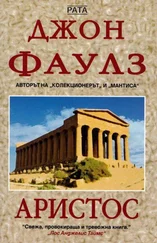
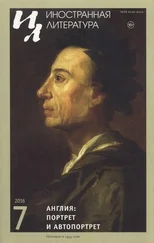
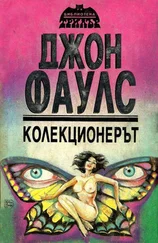
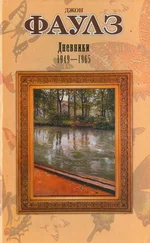

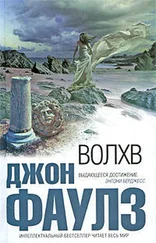
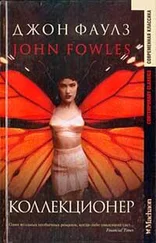
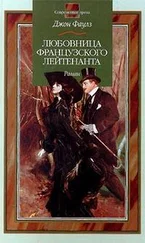
![Джон Фаулз - Вылазка в действительность [антология]](/books/431648/dzhon-faulz-vylazka-v-dejstvitelnost-antologiya-thumb.webp)
![Джон Фаулз - Мантисса [litres]](/books/438194/dzhon-faulz-mantissa-litres-thumb.webp)